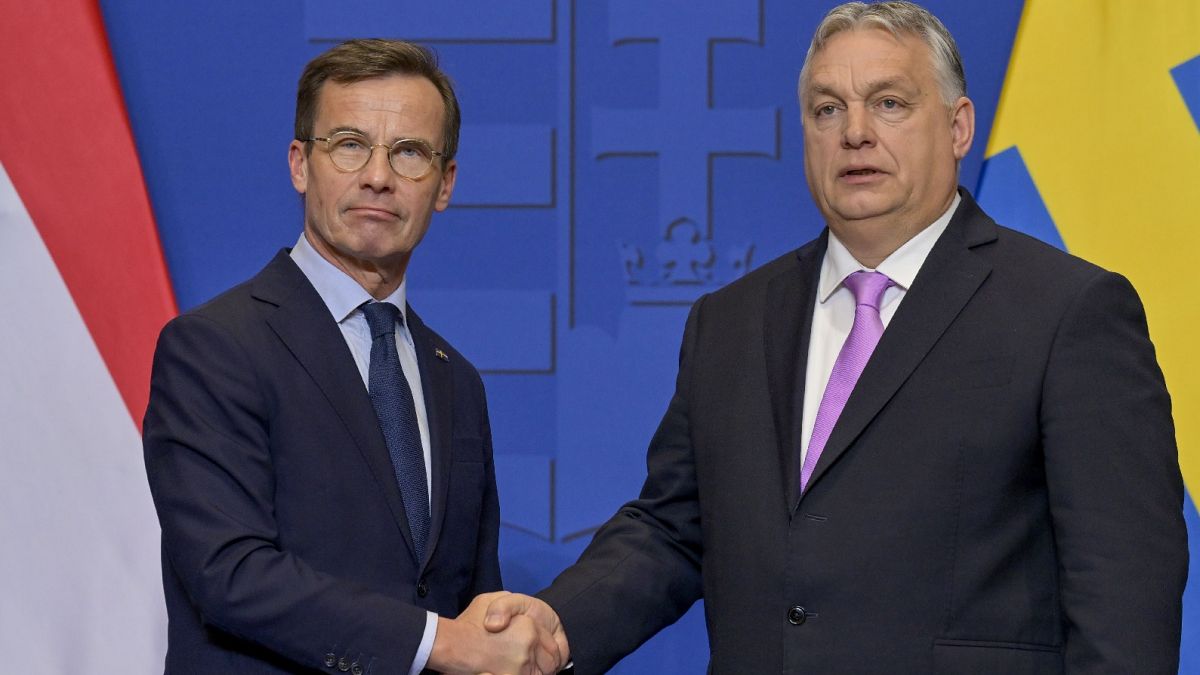Hungarian Parliament set to greenlight Sweden’s NATO membership 18 months after bid was first made
Hungary’s delay in ratifying Sweden’s membership to the military alliance had seen is accused of trying to secure EU concessions. Hungary’s parliament is on Monday expected to ratify Sweden’s membership to the NATO military alliance, giving its stamp of approval 18 months after the Scandinavian country first made a bid to join. Hungary is the […]


Hungary’s delay in ratifying Sweden’s membership to the military alliance had seen is accused of trying to secure EU concessions.
Hungary’s parliament is on Monday expected to ratify Sweden’s membership to the NATO military alliance, giving its stamp of approval 18 months after the Scandinavian country first made a bid to join.
Hungary is the last of NATO’s 31 members to approve Sweden’s membership after Turkey backed the move last month.
It comes after Swedish Prime Minister Ulf Kristersson travelled to Budapest last week for a meeting with his Hungarian counterpart, Prime Minister Viktor Orbán, during which a defence industry agreement was struck.
Under the deal, Hungary will acquire four Gripen fighter-bomber planes which Orbán said would be “significantly increasing our military capabilities and further strengthening our ability to play a role abroad.”
Joining NATO requires unanimity from all its members, and so the vote on Monday will remove the last hurdle to Sweden’s accession.
Sweden, like neighbouring Finland, made its bid to join the alliance within weeks of Russia launching its full-scale invasion of Ukraine on Feb. 24, 2022, dropping decades of neutrality.
But unlike Finland, its bid was delayed as both Ankara and Budapest sought concessions.
Turkey accused Sweden of being soft toward supporters of Kurdish militants and other groups in Sweden that Ankara views as security threats which led Stockholm to tighten its anti-terrorism laws, making support for extremist organisations punishable by up to eight years in prison.
NATO also agreed to establish a special coordinator for counterterrorism and appointed Assistant Secretary-General Tom Goffus to the position.
Budapest, meanwhile, took aim at what it described as “blatant lies” from Swedish politicians about the condition of Hungary’s democracy.
Hungary’s stance had drawn accusations it was trying to use Sweden’s NATO membership bid to carve concessions at the EU level.














